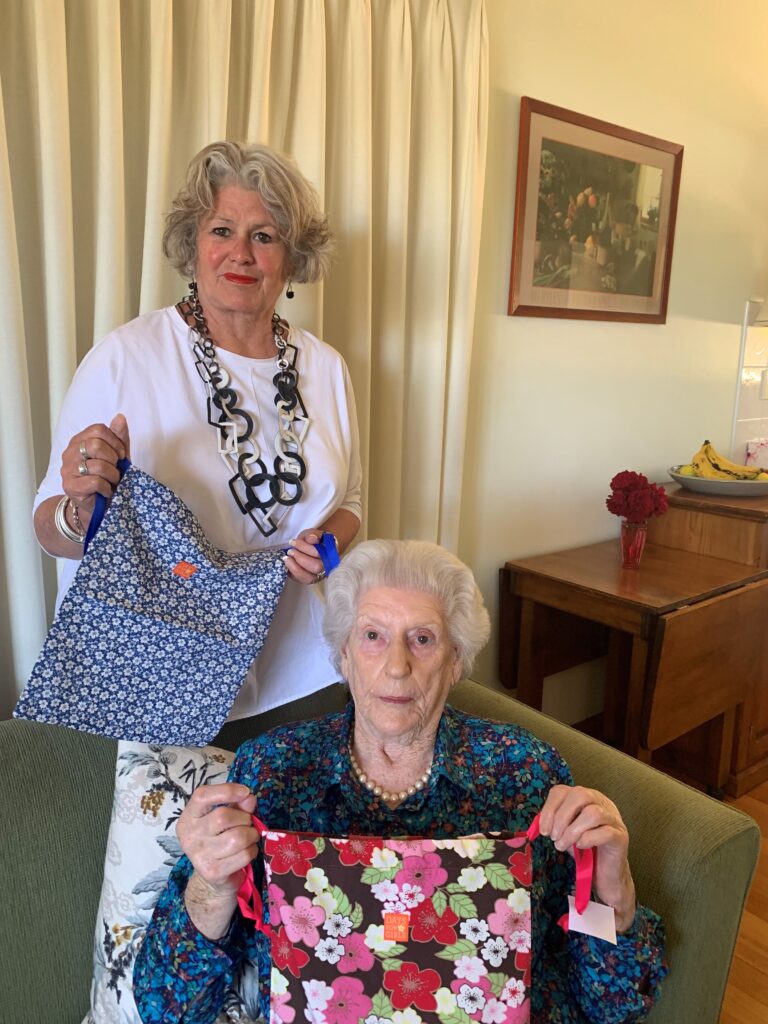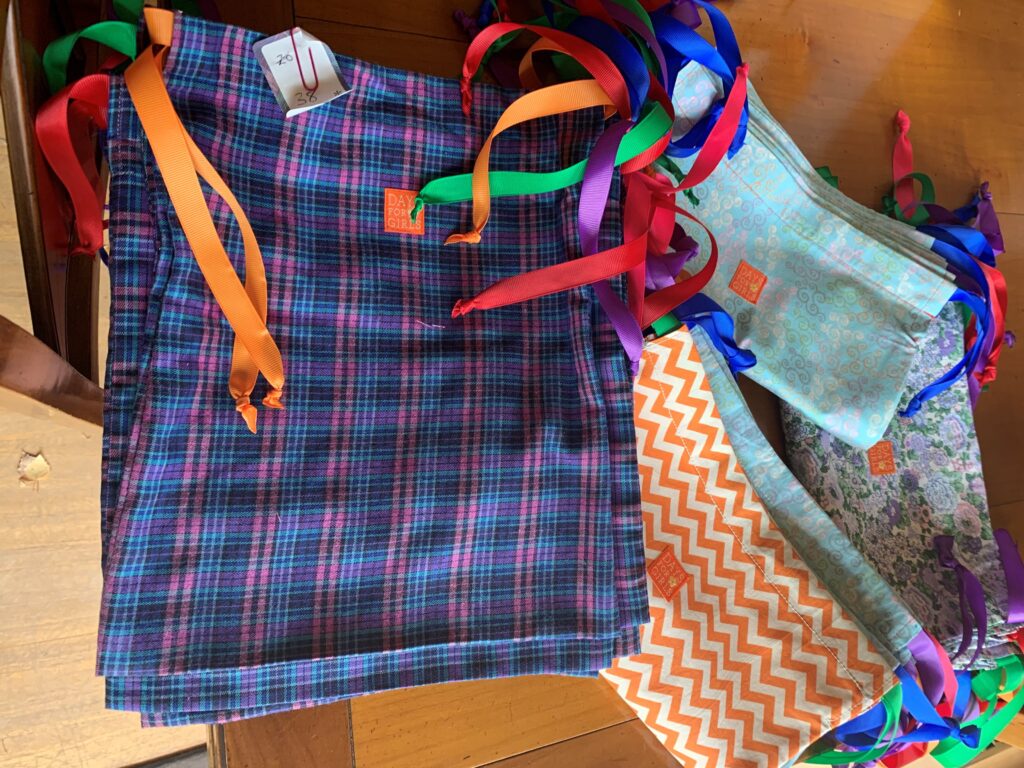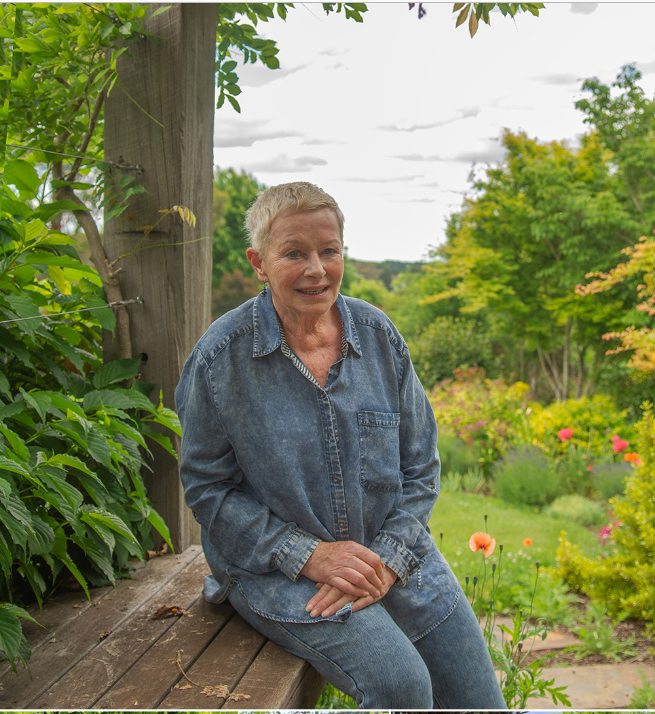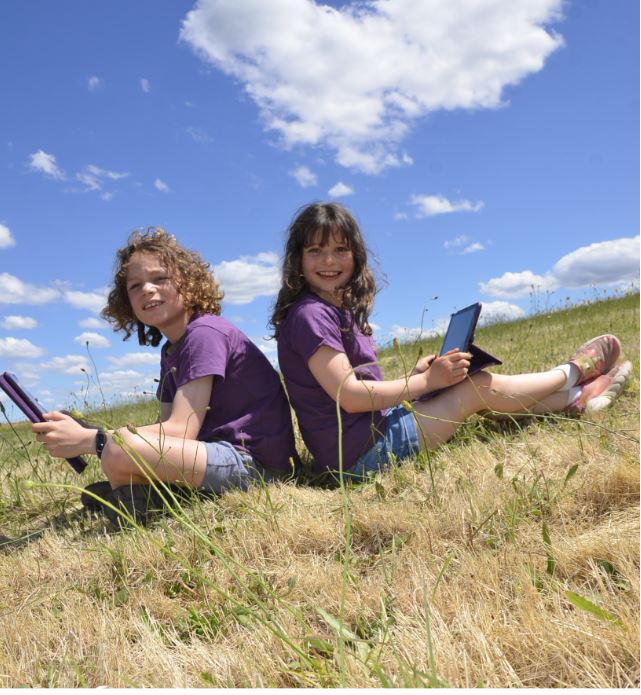January 23rd, 2021Changing women’s lives – one pack at a time
It’s also unthinkable that while women worldwide in 2021 lack the basic and fundamental right to have access to pads and meds to manage their periods, it is still one of those issues that even educated first world communities struggle to openly talk about.

But a group of locals across the Hepburn Shire is doing their part to make a difference. Over the past 18 months, women of all ages and backgrounds, and even a couple of men, meet to help create much-needed reusable, hygienic and safe period kits to make monthly periods more bearable for women and young girls.
The Days for Girls movement started in America and the initiative has directly helped more than a million girls and women across the world. Days for Girls increases access to menstrual care and education by developing global partnerships, cultivating social enterprises, mobilising volunteers and finding sustainable solutions to help stop the stigmas and limitations for women.
When local Hepburn Shire residents Terri Oprean, Lynn McCauly and Kathy Hancock first heard about the project, they were immediately inspired to be part of the program and went on to set up a group locally with the support of the Rotary Club of Daylesford.
Now up to 20 people a month meet in the chapel of the local funeral director to play a small part in a movement that has a massive immediate impact on the lives of young girls and women – access to pads, meds, underwear and knowledge.

Terri taught health and human development at girls’ schools in Melbourne for many years. When she made the move to Daylesford, she quickly became involved with the community, working part time as a food tech teacher at the local secondary college, joining Rotary, and becoming an integral part of the community. When she heard about Days for Girls, she said it “ticked all the boxes”.
“Despite media campaigns to change the way we view the issue in Western Society, for many girls and women around the world, monthly periods invoke fear, loneliness, sickness and separation. For some there simply is no school. For others, like girls in some parts of Nepal, they are confined to their home, sitting on a flattened cardboard box until their period ends,” she said.
“I taught health and human development for many years to girls and knew this was such a wonderful program to become involved with.
“Days for Girls increases access to menstrual care and education by developing global partnerships, cultivating social enterprises, mobilising volunteers, and innovating sustainable solutions that shatter stigmas and limitations for women and girls,” she said.
So much work goes into the kits.
“A waterproof liner is shaped like a pad and it is designed to clip around undies at each end. The liners are designed to be reusable so can be rinsed out and can last between three to five years.
“But the kits also contain information to help young girls understand basic hygiene and menstrual cycles. It’s helping them better understand their bodies and to manage and continue to live their lives, go to school and be part of their communities when they have their periods.”
Terri said strict guidelines mean absolute quality control so the products are reusable, sustainable and environmentally friendly.
“There are extremely strict guidelines, quality control and instructions that must be followed to ensure every component in the kit is of the highest standard. Over the years there have been around 18 iterations to the kits,” she said.
“All the material used must be 100 per cent cotton, a dark colour and we adhere to a stringent tick sheet to ensure all the components are of a gold standard.”
The group found innovative ways to continue creating and sending off more than 300 packs during COVID. “A wonderful group of people living in a Creswick Aged Care Facility spent hours opening up little bars of soap to place in the kits. Many continued sewing over COVID, picking up material at my doorstep, and leaving the finished products back there again, so we could continue our work without the regular contact.”
But not everyone involved in the group sews. There are many different and important roles people play in the group.
“There is washing and ironing of the fabric, folding face washers and underwear, taking small bars of soap out of the packets and putting the kits together. Whatever the task, according to Terri, everyone plays an important role in the kits coming together.
“We have a lot of fun, a lot of laughs and really connect over such a wonderful and important cause. Local women have even donated money to the cause and in return have received a kit as some have already realised the value in reusable pads not only for periods, but for incontinence as well,” she said.
Periods have become political. In Victoria all state government schools now provide free tampons and pads for students. In America a law was passed to make it illegal for schools not to. But for many young girls and women across the world, having and managing their periods is not as easy as accessing a pad at school. Days for Girls in Hepburn and across the world are changing the status quo – one kit at a time.
To get involved, contact Terri at daylesfordvic@daylesfordforgirls.org
Words: Narelle Groenhunt
Above, standing, one of the organisers Terri Oprean with volunteer Joan Oates
Below, the Days for Girls kits
Images: Contributed










